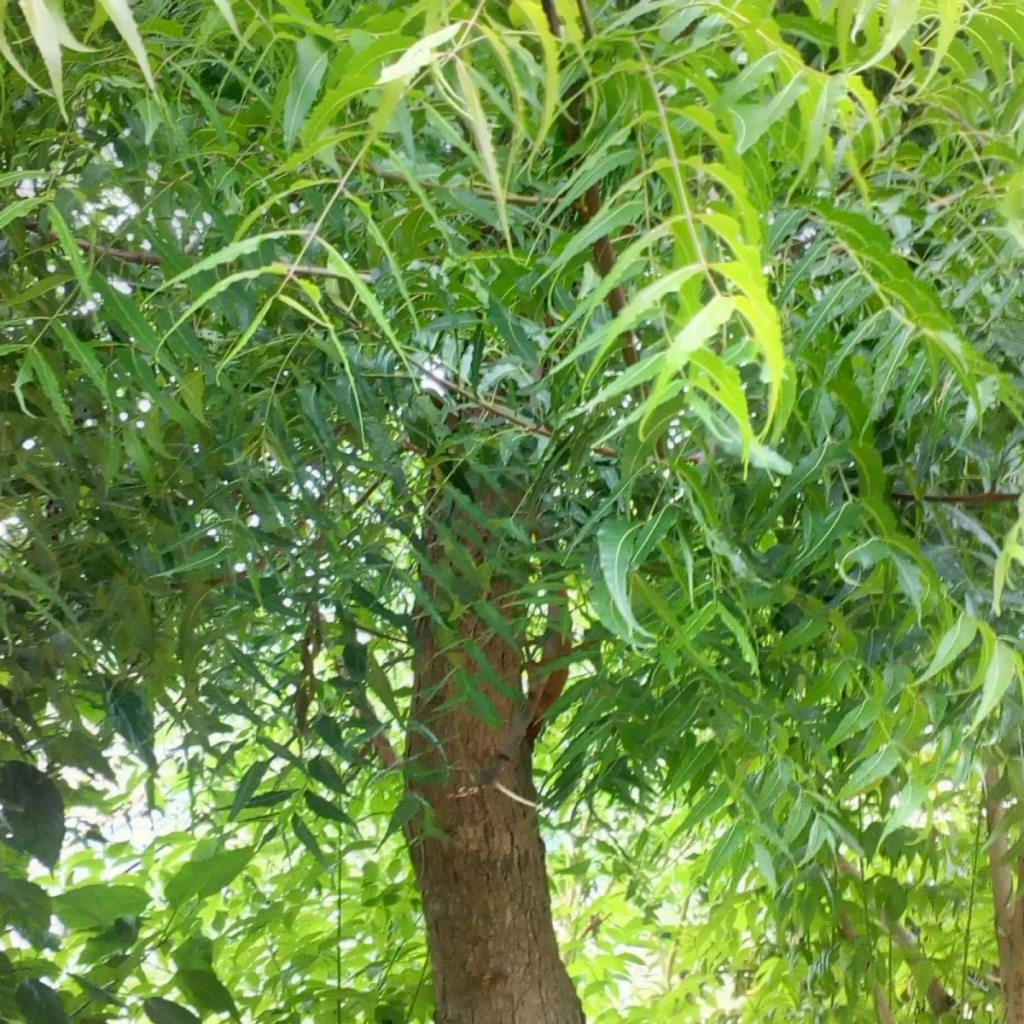
Common Name: Neem Tree
Botanical Name: Azadirachta Indica
Hindi Name: Neem
Marathi Name: Nimba
Family: Meliaceae
The Neem tree, scientifically known as Azadirachta indica, is a versatile evergreen tree native to the Indian subcontinent. It is highly regarded for its numerous uses and benefits, earning it the title of “The Village Pharmacy” in India.
The Neem tree is renowned for its extensive range of applications. Here are some notable features:
1. Medicinal Properties: Neem has been an integral part of traditional Ayurvedic medicine for centuries. It possesses a wide array of medicinal properties and is used to treat various ailments. Neem is known for its antibacterial, antifungal, antiviral, anti-inflammatory, and antioxidant effects.
2. Skin and Hair Care: Neem is widely utilized in skincare and hair care products. Its leaves, oil, and extracts are used to treat skin conditions such as acne, eczema, and psoriasis. Neem oil is also used to promote healthy hair, combat dandruff, and prevent scalp infections.
3. Oral Health: Neem’s antimicrobial properties make it valuable in maintaining oral hygiene. Neem twigs are traditionally used as natural toothbrushes to promote gum health, prevent cavities, and freshen breath. Neem extracts are also found in toothpaste and mouthwashes.
4. Pest Control: Neem is a natural pesticide and insect repellent. Its extracts are used in agriculture to protect crops from pests and insects while being environmentally friendly. Neem oil is also used in household and personal care products to repel mosquitoes and other insects.
5. Immune System Support: Neem is believed to boost the immune system and promote overall health. It is known to have immunomodulatory properties that help the body fight against infections and diseases.
6. Environmental Benefits: Neem trees play a vital role in environmental conservation. They help prevent soil erosion, improve soil fertility, and contribute to reforestation efforts. Neem leaves act as a natural fertilizer, enriching the soil with essential nutrients.
7. Sustainable Practices: Neem trees are valued for their sustainable qualities. All parts of the tree, including leaves, bark, seeds, and oil, are utilized for various purposes, minimizing waste and promoting sustainable practices.
The Neem tree’s versatility, medicinal prowess, and environmental contributions make it a revered and invaluable asset in India. Its significance in traditional medicine, skincare, agriculture, and sustainable practices demonstrate its importance in promoting human and environmental well-being.
